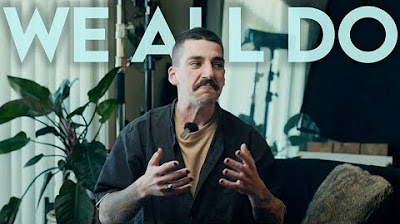5 BIGGEST MISTAKES WHEN STARTING PHOTOGRAPHY (and how to avoid them)
Summary
TLDRIn this inspiring video, the speaker dispels the myth that photography is an exclusive hobby for professionals. They emphasize the current golden age of accessible photography, where anyone can capture stunning images with any device. The speaker shares five crucial tips they wish they knew as a beginner: understanding camera settings, shooting in RAW for better editing flexibility, embracing the trial and error of editing, focusing on the subject matter rather than the gear, and most importantly, accepting and learning from initial imperfections. The video encourages viewers to pursue photography with passion and a mindset geared towards continuous improvement.
Takeaways
- 📸 Photography is more accessible than ever before, and you don't need expensive gear to get started.
- 🤳 Smartphones and entry-level cameras can capture great photos, and you don't need to be a professional to enjoy photography.
- 🌟 Always shoot in RAW format instead of JPEG to retain more details and have more options during editing.
- 🎨 Editing is a crucial part of photography. It may take time to find your style, but experimenting is key.
- 💼 Don't get caught up in having the best gear; a good camera doesn't make you a good photographer.
- 🗺️ Capture what you love, even if it's in an ordinary place or situation. Your passion and perspective matter more than the location.
- 👥 It's okay to make mistakes and not be perfect right away. Improvement comes with practice and time.
- 💖 Use photography to document your life and experiences, and focus on capturing moments that are meaningful to you.
- 🧠 Develop a mindset focused on learning and improving rather than comparing yourself to others.
- 🌍 Photography is an art form that anyone can enjoy and get better at, regardless of their starting point.
Q & A
Why does the speaker find photography intimidating at first?
-The speaker finds photography intimidating due to the presence of experienced photographers with expensive equipment at meetups, which initially led them to believe that photography was only for professionals with professional gear and mindsets.
What does the speaker believe the current era is for photography?
-The speaker believes we are in a golden age of photography, where it is highly accessible to anyone, eliminating the need for dark rooms and the uncertainty of film development.
What is the speaker's advice on the first step to becoming a better photographer?
-The speaker advises learning about camera settings, specifically mentioning the importance of shooting in RAW format for better editing flexibility and dynamic range.
Why does the speaker emphasize shooting in RAW format?
-Shooting in RAW format is emphasized because it provides more editing flexibility and a greater dynamic range compared to JPEG, allowing for better adjustments in post-production.
What does the speaker compare the process of learning photography and editing to?
-The speaker compares learning photography and editing to cooking, suggesting that as one becomes more experienced, they can experiment with more flavors and techniques, even if some attempts are not successful.
What is the speaker's opinion on the importance of the camera in determining the quality of photography?
-The speaker believes that while there are good and bad cameras, the camera itself is just a tool and does not determine one's skill in photography. It is the ideas and vision that matter more than the equipment.
What mistake does the speaker warn against when starting in photography?
-The speaker warns against worrying too much about the camera gear one starts with, suggesting that a mid to low-range camera is sufficient to learn the basics.
What story does the speaker share to illustrate the point about shooting what you love?
-The speaker shares a personal story of using an old camera to document their boredom during the COVID-19 pandemic, taking photos in their small town and creating memorable images without needing to travel to exotic locations.
What mindset does the speaker suggest for someone starting in photography?
-The speaker suggests embracing the fact that it's okay to be bad at first and not letting that stop one from continuing to take photos and learn from the process.
What does the speaker mean by 'realizing it's okay to suck' in the context of photography?
-The speaker means that beginners should understand and accept that they will not be perfect at the start, and this should not deter them from practicing and improving their photography skills.
What advice does the speaker give for overcoming the feeling of being demotivated by seeing better photographers?
-The speaker advises maintaining a balance between using others' work for inspiration and focusing on one's own growth, understanding that even accomplished photographers had a learning curve.
Outlines

This section is available to paid users only. Please upgrade to access this part.
Upgrade NowMindmap

This section is available to paid users only. Please upgrade to access this part.
Upgrade NowKeywords

This section is available to paid users only. Please upgrade to access this part.
Upgrade NowHighlights

This section is available to paid users only. Please upgrade to access this part.
Upgrade NowTranscripts

This section is available to paid users only. Please upgrade to access this part.
Upgrade NowBrowse More Related Video

I fell for this popular photography advice

As people transition through adolescence, curiosity about sex naturally arises | Zen Wisdom

August 23, 2024

#1 Most DANGEROUS Blood Sugar Lie You Must Know!

Web Developers Never Stop Learning.... No Life?

1000 ही INVEST karo🚀 ₹18 Penny stock to buy Now | Strong Fundamentals Stock to Buy Now #stocks
5.0 / 5 (0 votes)